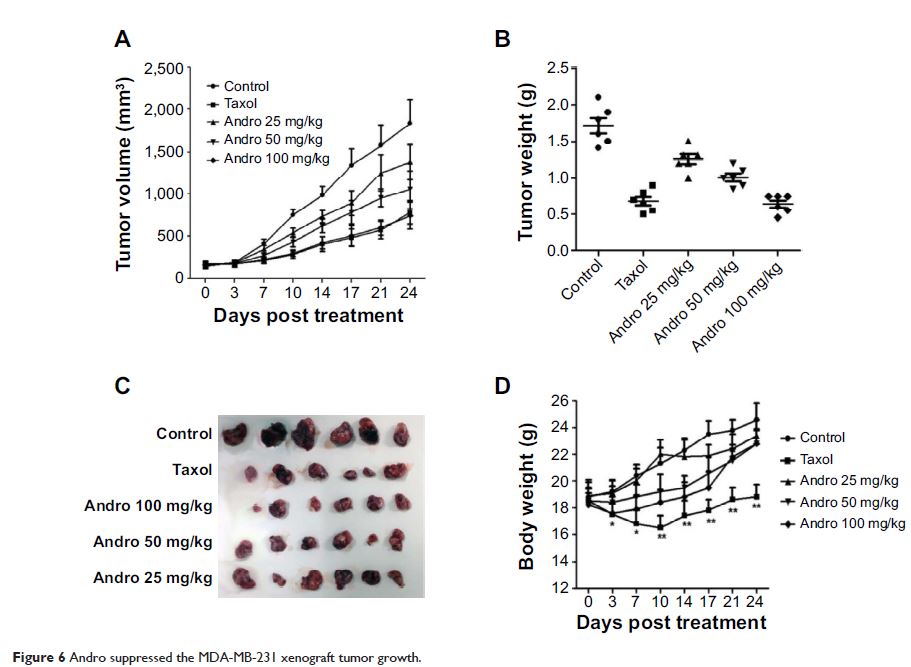109814
论文已发表
注册即可获取德孚的最新动态
IF 收录期刊
- 3.4 Breast Cancer (Dove Med Press)
- 3.2 Clin Epidemiol
- 2.6 Cancer Manag Res
- 2.9 Infect Drug Resist
- 3.7 Clin Interv Aging
- 5.1 Drug Des Dev Ther
- 3.1 Int J Chronic Obstr
- 6.6 Int J Nanomed
- 2.6 Int J Women's Health
- 2.9 Neuropsych Dis Treat
- 2.8 OncoTargets Ther
- 2.0 Patient Prefer Adher
- 2.2 Ther Clin Risk Manag
- 2.5 J Pain Res
- 3.0 Diabet Metab Synd Ob
- 3.2 Psychol Res Behav Ma
- 3.4 Nat Sci Sleep
- 1.8 Pharmgenomics Pers Med
- 2.0 Risk Manag Healthc Policy
- 4.1 J Inflamm Res
- 2.0 Int J Gen Med
- 3.4 J Hepatocell Carcinoma
- 3.0 J Asthma Allergy
- 2.2 Clin Cosmet Investig Dermatol
- 2.4 J Multidiscip Healthc

已发表论文
穿心莲内酯通过激活磷脂酰肌醇 3-激酶抑制低氧诱导因子- 1/AKT 的通路,并抑制乳腺癌的生长
Authors Li J, Zhang C, Jiang H, Cheng J
Published Date February 2015 Volume 2015:8 Pages 427—435
DOI http://dx.doi.org/10.2147/OTT.S76116
Received 20 October 2014, Accepted 7 January 2015, Published 13 February 2015
Approved for publication by Professor Jianmin Xu
Abstract: Hypoxia-inducible factor-1 (HIF-1) is a master regulator of the transcriptional response to hypoxia. HIF-1α is one of the most compelling anticancer targets. Andrographolide (Andro) was newly identified to inhibit HIF-1 in T47D cells (a half maximal effective concentration [EC50] of 1.03×10-7 mol/L), by a dual-luciferase reporter assay. It suppressed HIF-1α protein and gene accumulation, which was dependent on the inhibition of upstream phosphatidylinositol 3-kinase (PI3K)/AKT pathway. It also abrogated the expression of HIF-1 target vascular endothelial growth factor (VEGF) gene and protein. Further, Andro inhibited T47D and MDA-MB-231 cell proliferation and colony formation. In addition, it exhibited significant in vivo efficacy and antitumor potential against the MDA-MB-231 xenograft in nude mice. In conclusion, these results highlighted the potential effects of Andro, which inhibits HIF-1, and hence may be developed as an antitumor agent for breast cancer therapy in future.
Keywords: Andrographolide (Andro), HIF-1α, inhibit, breast cancer, hypoxia, PI3k/AKT/mTOR pathway
Keywords: Andrographolide (Andro), HIF-1α, inhibit, breast cancer, hypoxia, PI3k/AKT/mTOR pathway
